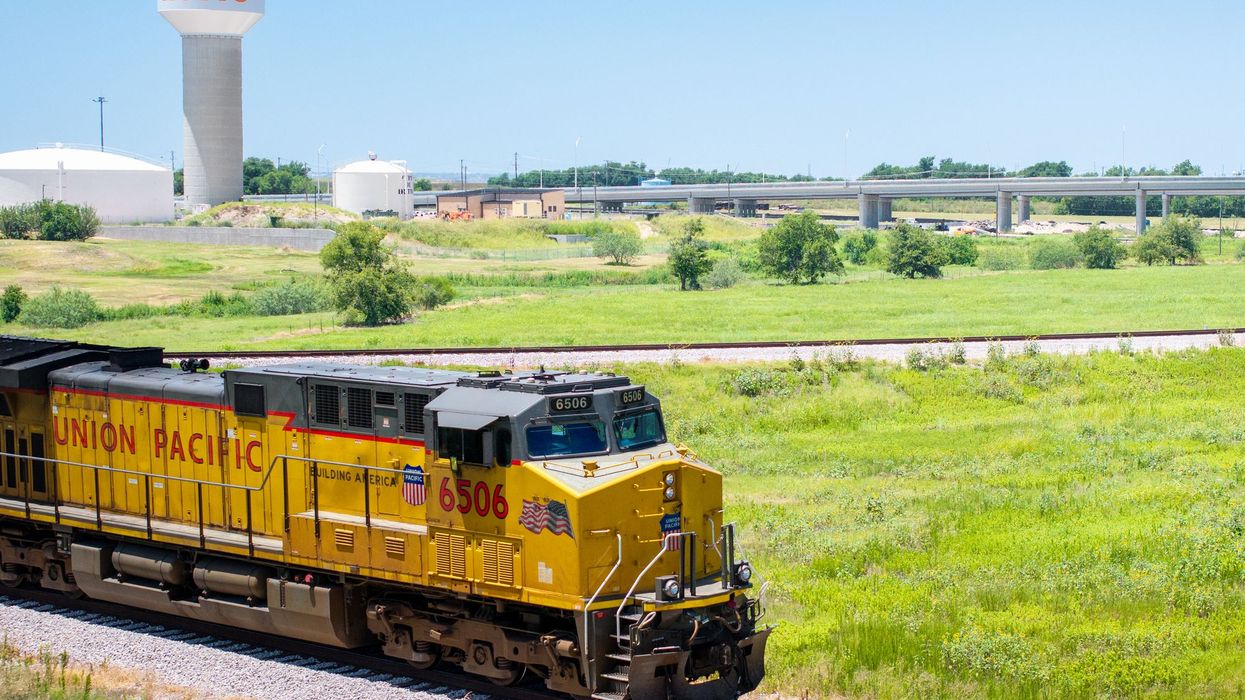The NAACP unanimously passed a resolution Tuesday at its convention in Las Vegas supporting fast-food workers' historic fight for $15 and a union.
Terrance Wise, a 35-year-old Kansas City Burger King worker and father of three, attended the convention on behalf of the fast-food workers' campaign. He said:
"My fiancee and I want to teach our children that, in America, as long as you work hard, you can get ahead. But our children watch us go to work each day only to come home to eviction notices, shut-off notices, and bare cupboards. The civil rights movement taught us what to do when our nation defaults on a promise. Straighten your back, stand together, and fight for justice. With the NAACP in our corner, we know we can win."
This is just the latest sign that the NAACP stands with fast-food workers fighting for $15 and a union. Since the campaign launched in November 2012, leaders of the organization and its local chapters have joined workers on strike lines and at rallies and protests across the country.
Full text of the resolution is below.
Support of the Fast Food Industry Workers' Movement Fighting to Win Living Wage & the Right to Form a Union Without Retaliation
Kansas City, Missouri (Unit 4066)
WHEREAS, the promotion of economic justice for all is a cornerstone of the NAACP's mission, and the organization has steadfastly supported efforts to obtain a living wage for all working people, including endorsement of the Fair Minimum Wag Act of 2013 and the Executive Order mandating that federal contractors raise their minimum wage to $10.10 an hour; and
WHEREAS, the struggles of working people of color to win just compensation, equal treatment, and the right to form a union without retaliation have long been essential to the advancement of people of color; and
WHEREAS, the four million fast food workers are the largest group of minimum wage workers in the United States, with workers of color disproportionately represented and especially concentrated in the lowest paying jobs; where only ten percent of workers of color hold management positions compared with almost half of the white men who work in fast food industry, further perpetuating the racial wage gap; and
WHEREAS, the Fast Food Worker Movement is a broad multi-racial movement of fast food workers fighting for a living wage and the right to form a union without retaliation as a vehicle to transform the reality of low-wage workers who struggle to survive on poverty wages, with little or no access to benefits or health care, and so are forced to rely on public assistance to provide for their families and who are subject to discrimination, harassment, and wage theft, among other injustices; and
WHEREAS, the movement has continued to grow, with fast food workers in stores in more than 100 cities across the United States went on strike in December of 2013; and
WHEREAS, a national coalition of faith, community, civil rights, labor unions, and worker advocacy organization have joined together to support the fast food workers' movement and its call for broadly-shared prosperity and an economy that works for all.
THEREFORE, BE IT RESOLVED that the National Association for the Advancement of Colored People fully support the movement of fast food workers to win a living wage and the right to form a union without retaliation and will stand with workers, and take necessary action to build a better and more equal future for all workers.
BE IT FINALLY RESOLVED that NAACP units actively join approved coalitions within their jurisdiction in support of the fast food workers movement.



